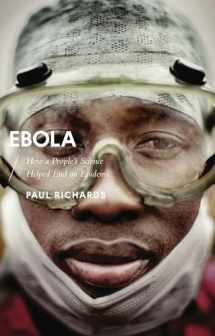
Ebola: How a People's Science Helped End an Epidemic (African Arguments)
Book details
Summary
Description
In 2013, the largest Ebola outbreak in history swept across West Africa, claiming thousands of lives in Liberia, Sierra Leone, and Guinea and sending the international community into panic. By 2014, experts were grimly predicting that millions would be infected within months, and a huge international control effort was mounted to contain the virus. Yet paradoxically, at this point the disease was already going into decline in Africa itself. Why did outside observers get it so wrong?
Paul Richards draws on his extensive firsthand experience in Sierra Leone to argue that the international community’s alarmed response failed to take account of local expertise and common sense. Crucially, Richards shows that the humanitarian response to the disease was most effective in those areas where it supported community initiatives already in place, such as giving local people agency in terms of disposing of bodies. In turn, the international response dangerously hampered recovery when it ignored or disregarded local knowledge.
One of the first books to provide an in-depth analysis of the recent pandemic, Ebola offers a clear-eyed account of how and why the disease spread, and why the predictions of international commentators were so misguided. By learning from these mistakes and successes, we can better understand how to harness the power of local communities during future humanitarian health crises.


We would LOVE it if you could help us and other readers by reviewing the book
Book review



